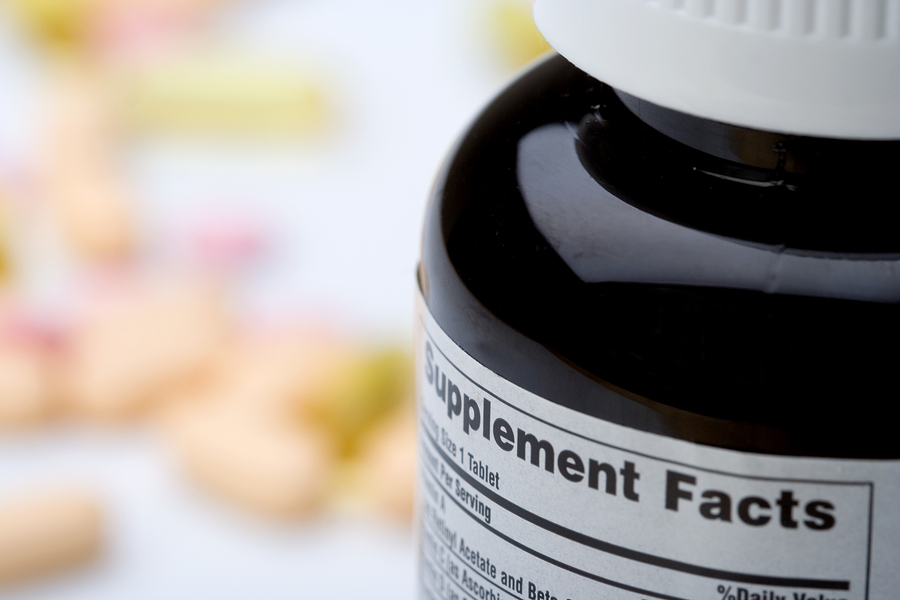 You’ve seen it for years on milk cartons: “Vitamin D fortified.” When we were growing up, we all learned that vitamin D keeps our bones and teeth healthy and strong, but this hormone-like vitamin has been getting more attention recently for other potential health benefits.
You’ve seen it for years on milk cartons: “Vitamin D fortified.” When we were growing up, we all learned that vitamin D keeps our bones and teeth healthy and strong, but this hormone-like vitamin has been getting more attention recently for other potential health benefits.
Vitamin D’s primary functions involve calcium absorption and bone mineralization. Vitamin D deficiency leads to bone-softening disorders like rickets in children, and osteomalacia, osteopenia and osteoporosis in adults. More recent research suggests that benefits of vitamin D extend beyond the bones and could help with high blood pressure, autoimmune conditions, some pain syndromes and even cancer.
Did you know…
Vitamin D is a fat-soluble vitamin, so it will absorb best when you take it with food containing at least some fat.
Vitamin D is produced in our bodies when the sun’s UV-B rays strike our skin.
Vitamin D is naturally present in very few foods, added to others and available as a dietary supplement. Great sources of vitamin D include cod liver oil, fatty fish like salmon and mackerel.
Not-so-great sources of vitamin D include cheese and yogurt because the milk used to make these products may not have had vitamin D added.
Vitamin D3, or Cholecalciferol, is a commonly recommended vitamin D supplement.
Vitamin D levels in your body are affected by:
Dietary intake. While the RDA is set at somewhere between 200 and 800 international units (IU) per day, the truth is that we’re not exactly sure at this point. In fact, newer data suggests that we may need more vitamin D than previously thought.
Exposure to sunlight. Approximately 10 minutes of mid-day sun on your face, hands and forearms, on most days are ideal. Logic tells us that we get more vitamin D during the summer months and less during the winter months.
Skin loses efficiency in producing vitamin D in the presence of sunlight as we age, so the elderly don’t absorb vitamin D as well as younger folks. Also, people with darker skin don’t create as much vitamin D when sunlight strikes their skin.
Sunblock. Makes sense, right? SPF 8 or more completely blocks vitamin D production in the skin.
Glass. Wait a minute… glass? It’s true! Glass filters out most UV-B rays, so sunlight through a window doesn’t promote vitamin D production.
Certain medical conditions. Some kidney and liver disorders interfere with vitamin D metabolism. If you have a history of skin cancer, a dermatologist probably urged you to avoid sunlight, which can cause lower levels of vitamin D.
How do you know if your body has an adequate supply of vitamin D?
Periodic blood testing is the only way to know for sure. The recommended study is the 25(OH)D test, so ask your doctor to avoid the 1,25(OH)D study, which isn’t accurate for this purpose. We don’t just want to be barely within the proper blood value range. Our goal is to be in the high end of the range in order to achieve optimal health. This usually requires supplementation.
Once you establish your vitamin D levels, your doctor can safely recommend supplementation if necessary. Here is a rundown of supplements I take, including vitamin D, which usually requires supplementation.
Can you have too much vitamin D in your body? Because vitamin D is stored in your body, you can indeed accumulate too much and become toxic. Although this is extremely rare, it can be a potentially serious problem, so consult your doctor before taking this or any supplement. Also, if you have tuberculosis or lymphoma, vitamin D can actually worsen the condition.
As we work to take back our health during the year of the family, let’s leave no stone unturned. Like the old saying goes, knowledge is power. Empower yourself to make healthier decisions with some basic knowledge about vitamin D and other supplements. Schedule regular blood tests, and make sure you and your family are getting plenty of vitamin D.
Dr. James Proodian is an accomplished chiropractic physician and health educator who founded Proodian Healthcare Family of Companies to help people feel better, function better, and live longer. His expertise for the past two decades has been in physical rehabilitation, and he has successfully established himself as a spinal specialist. In his practice, he advocates the science of functional medicine, which takes an integrative approach to treating patients by addressing their physical, nutritional, and psychological needs. Alarmed by the escalation of complex, chronic illness in our country, Dr. Proodian has been speaking to companies and organizations through his “Wellness at Work” program since 1994, motivating thousands of people to make positive lifestyle choices and lead healthier, more productive lives. He can be heard weekly on his radio program, “Proodian Healthcare By Design,” on Tandem Radio.